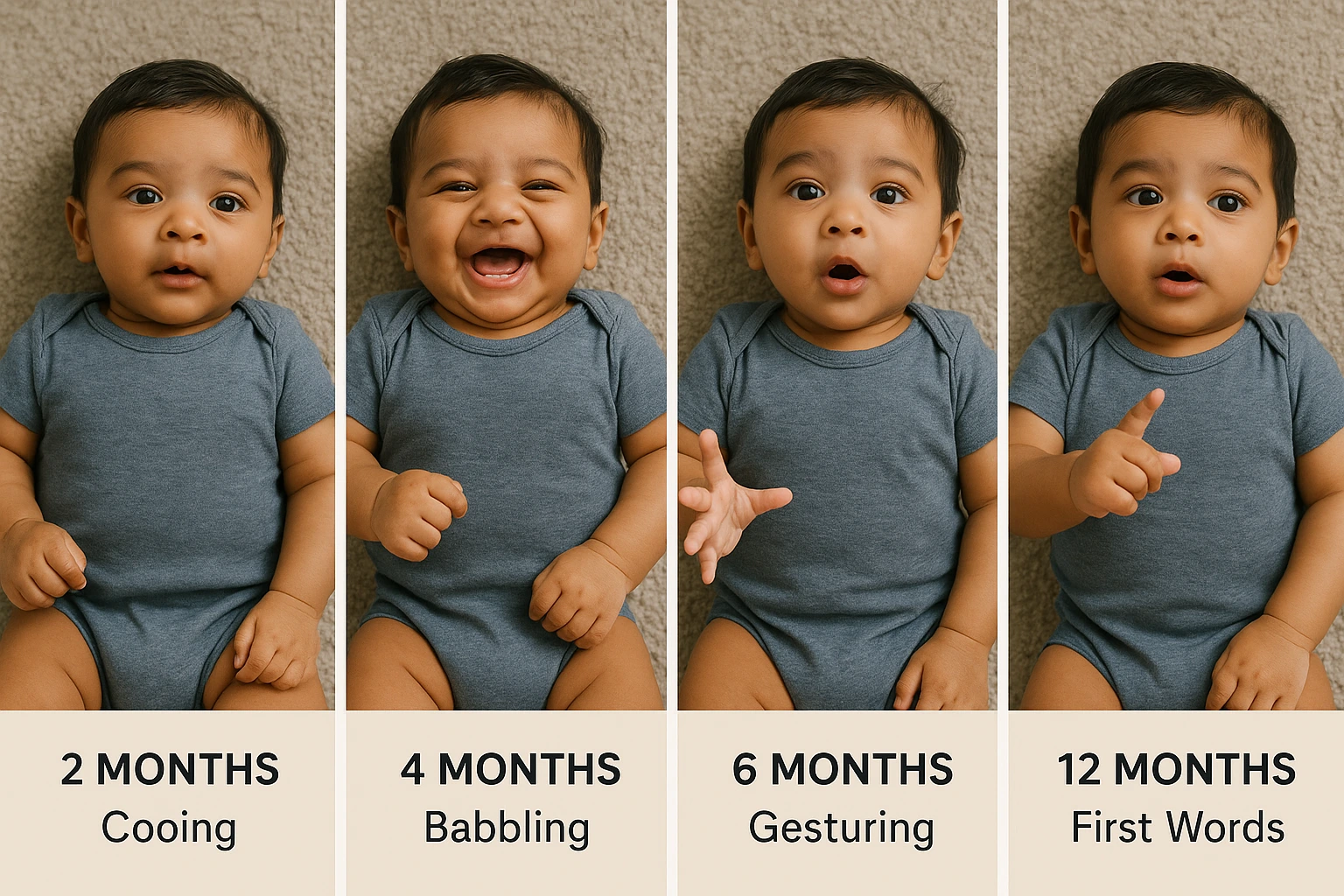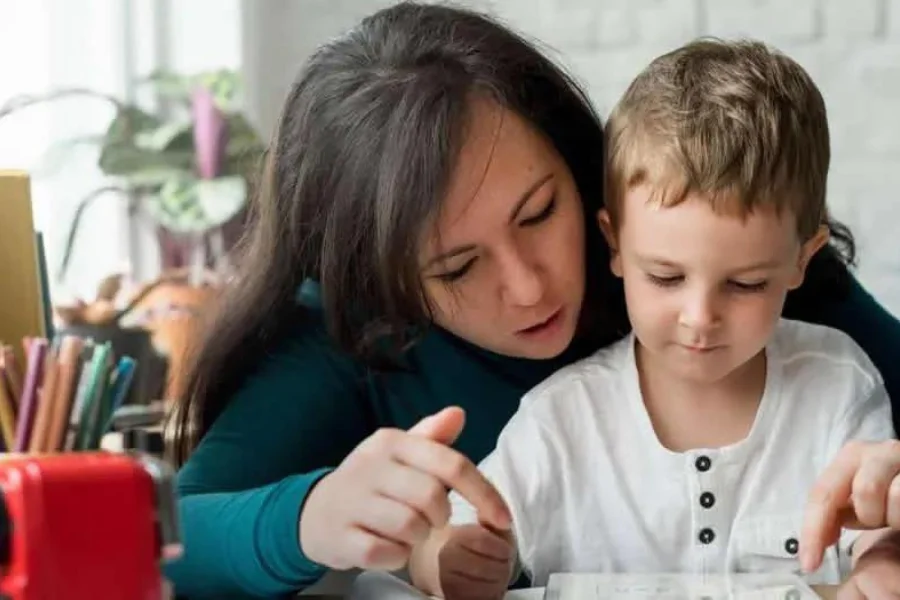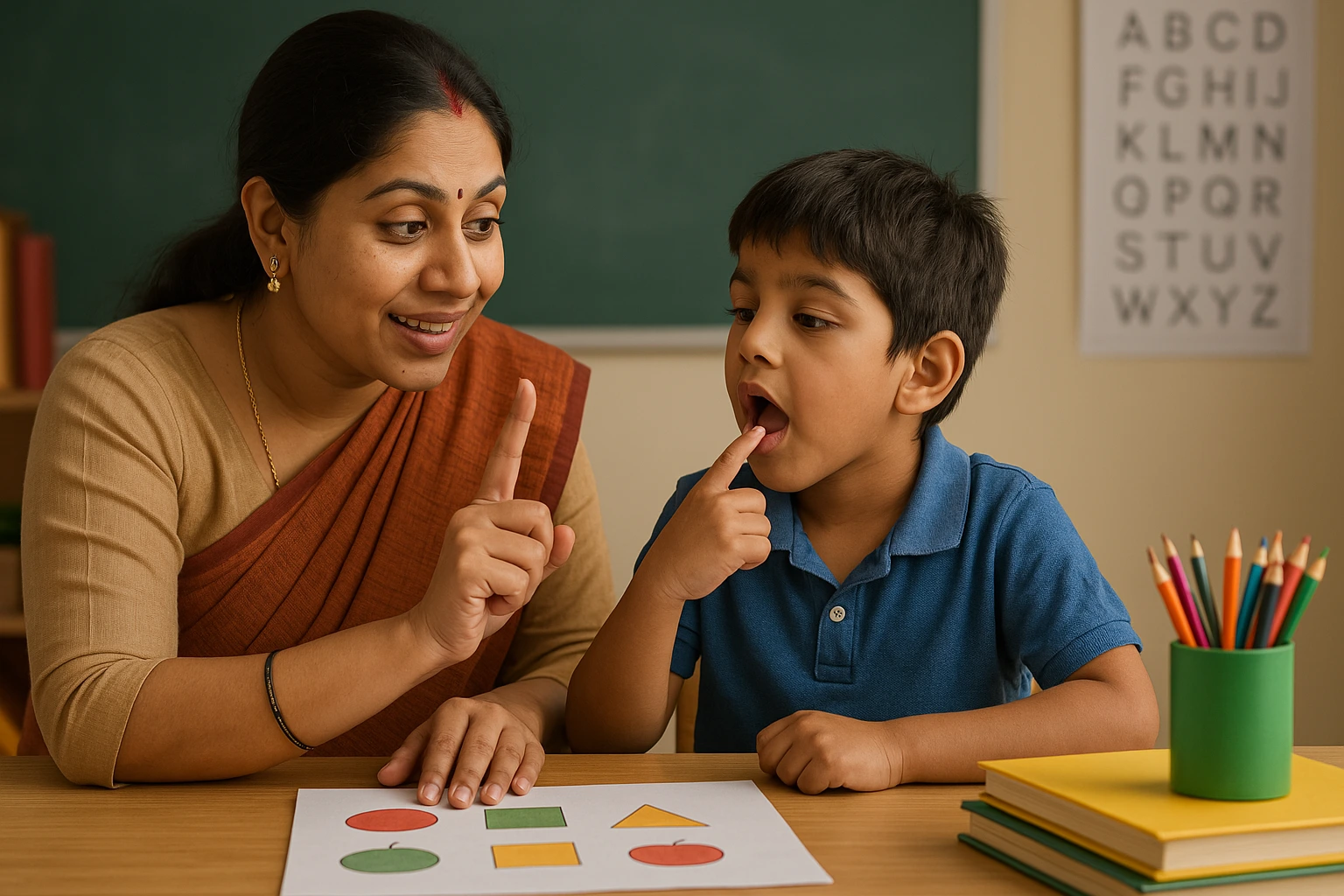
The ability to communicate is one of the most valuable skills that any living being possesses. To thrive, grow and flourish effectively in any environment, language skills are of utmost importance. Speech development Milestones are a list of indicators beginning with the child’s first coos progressing to words and then leading to forming full sentences. These milestones are scientifically listed as per the child’s age group that follows a structure of just plain sounds and expressions first to gain the parent’s attention and slowly forms into conversations.
Understanding the speech developmental milestones enables parents and caregivers to carefully track a child’s speech progress and take the necessary steps in case of any delays.
What are the Stages of Speech Development?
The Early Age period is the most crucial period where the brain absorbs language skills the most. It is an intensive period of acquiring communication skills that appear systematically at the desired age. There must be adequate exposure to rich atmospheres where the child feels the need to express himself.
Speech Development Milestones appears in phases that start with happens in stages, starting with elementary sounds that develop into words and later progress into proper basic sentences with correct syntax and grammar.
Stages of Speech Development:
Pre-linguistic Stage (Birth to 6 Months)
- Babies begin learning sounds and gestures.
- They express themselves through crying, cooing, and other vocalizations.
- They recognize familiar voices and start responding to them.
Babbling Stage (6 to 9 Months)
- Babies experiment with different sounds, repeating syllables like “babe” or “da-da.”
- They mimic speech rhythms and intonations from their surroundings.
Single-Word Stage (9 to 18 Months)
- In this stage, the child uses just the specific word to convey his need. E.g. , he will say “water,” which is equivalent to him expressing his need for water.
Double-Word Period (18 to 24 Months)
- In this phase, the child connects two words to express his wants. E.g. ,want milk or “go out”
Telegraphic Stage (24 to 30 Months)
- Here, the child starts combining 3 words to make small sentences.
- Their exposure to the outside world expands, which helps them discover new words and use them in their speech.
Multi-word Stage (After 30 Months)
- Sentences become more structured and grammatically correct.
- Children can express emotions, ask questions, and hold short conversations.
Complex Sentence Stage (36 Months and Beyond)
- This stage is marked by proper grammatically correct statements.
- They now understand that they must give others a chance to speak and follow taking turns.
To download the brochure of SEN Course, Click Here!
For more details about SEN Course Call/WhatsApp at +919321024137 / +919869866277
Source: noldus
Key Areas of Speech Development
Phonology – Learning to produce and distinguish speech sounds.
Grammar – Understanding sentence structure and word order.
Ability to make friends or meaningful relationships- Being confident enough to interact freely and make new friends or relationships.
Speech Development Milestones is a crucial process that encompasses different stages of a child’s life, wherein each stage of the child has certain speech milestones that must be attained.
A thorough understanding of language skills helps to offer children important learning experiences that foster their communication skills and helps them develop potent communication skills.
What is a Speech and Language Assessment?
A speech and language assessment is a procedure initiated by qualified personnel to identify if any speech-related issues are affecting the overall holistic progress of the child, hinting at any developmental delay.
This assessment is a certified diagnosis that the child is facing some crisis or some developmental delay that is hampering his Speech and communication, which leads to poor interaction skills and low confidence.
This assessment is a valuable tool for parents and caregivers to be ready with solutions and offer the child the desired support to help them navigate their challenges related to speech and communication.
What is Assessed?
Responsive Language:
- The ability of the child to take in any form of spoken or written communication and process it correctly.
- To understand and process spoken or written language.
Communicative Language:
- The skill to make use of different words, sentences to express thoughts and ideas.
Voicing:
- How well a person can perfectly pronounce sounds.
Articulacy:
- How flawlessly one can hold a conversation to rule out issues like stuttering.
Voice:
- How a person sounds, the quality of their voice.
Reasoning:
- The logical aspects of communication such as making eye contact, letting the other person finish expressing their ideas, and holding proper eye contact.
To download the brochure of SEN Course, Click Here!
For more details about SEN Course Call/WhatsApp at +919321024137 / +919869866277
The assessment may also include:
- Oral Mechanism Exam – Checking the strength and movement of the lips, tongue, and jaw.
- Single Word Test – Evaluating pronunciation of individual words.
- Conversational Speech Sample – Analyzing speech in a natural conversation.
- Phonological Awareness Screener – Assessing a child’s ability to recognize and manipulate sounds in words.
- Stimulability Check – Determining whether a person can improve speech sounds with guidance.
How is it conducted?
Case History
The SLP collects information about the person’s communication development, medical background, and concerns.
Observation
The person’s speech and language skills are observed in different surroundings and relations.
Standardized Tests
These structured tests measure various aspects of speech and language to compare results to age standards.
Informal Assessments
Play-based activities, storytelling, or casual conversations may be used to assess communication naturally.
Parent/Caregiver Input
Parents and caregivers provide valuable insights into a kid’s speech and language development at home.
Periodic reviewing
Timely assessing of the progress made helps to see if the current therapy is helping the child, and if the therapy is not yielding the desired outcomes, do the essential modifications for better results.
A speech and language assessment is an important step to determine if there is any developmental delay after which the necessary steps will be taken to start the desired interventions.
What is the Purpose of a Speech Assessment?
A speech assessment is a formal procedure that helps to assess an individual’s communication capabilities by interpreting data collected through various sources. It is a scientifically structured assessment conducted by concerned professionals who have undergone appropriate training to detect if the person has any speech disorders and, accordingly, devise interventions. These interventions help to nurture the child’s communication skills and ensure that the challenges faced by children are effectively managed by them.
Vidhyanidhi Education Society (Govt. Regd.) offers a Special Education Needs Course that prepares teachers with the skills to support children with speech and language difficulties.

Source: ayushmantuitions
- Identifies Speech and Language Delays: Helps determine if a kid’s speech and language skills are developing as expected.
- Diagnoses Communication Disorders: Assesses disorders such as articulation disorders, stuttering, or language understanding issues.
- Develops Personalized Intervention Plans: Provides targeted therapy recommendations to improve speech clarity, fluency, and expressive skills.
- Monitors Progress over Time: Ensures that speech therapy or intervention methods are effective and modified as needed.
- Supports Academic and Social Development: Strong communication skills are important for learning, social interactions, and overall confidence.
The process includes gathering background information, observing communication behaviors, and using consistent tests to measure speech fluency and understanding. The results help professionals control whether intervention is needed and guide therapy planning.
The Special Education Course offered by Vidhyanidhi Education Society (Govt. Regd.) provides detailed teaching to teachers, therapists, and caregivers, preparing them with skills require to help children with communication and learning difficulties also Speech Development Milestones. This program is designed to improve skills in Speech Development Milestones, behavior management, and inclusive education.
The Special Education Course helps teachers and professionals develop skills in recognizing and addressing speech and language challenges. By getting these skills, they can provide better support to children, ensuring they reach their full communication potential.
Join Vidhyanidhi Education Society’s SEN Course Today! Support Growth, Spark Potential, Transform Lives!
For more details on the SEN Course Call/WhatsApp at +919321024137 / +919869866277
To download the brochure of the SEN Course, Click Here!
Speech Development Milestones
FAQ
Why is Monitoring and Assessing Children's Development Important?
It helps recognize delays early, supports learning, and ensures starting early treatment for speech, language, and academic growth.
What are the Milestones for Speech Delay?
By 12 months if no babbling. By 18 months if no words. By 2 years if no two-word phrases. By 3 years: Unclear speech. Delays need evaluation by a specialist.
Can a Child Overcome Speech Delay?
Yes, with initial treatment, speech therapy, and support. Vidhyanidhi Education Society offers specialized courses to help educators assist children effectively.





